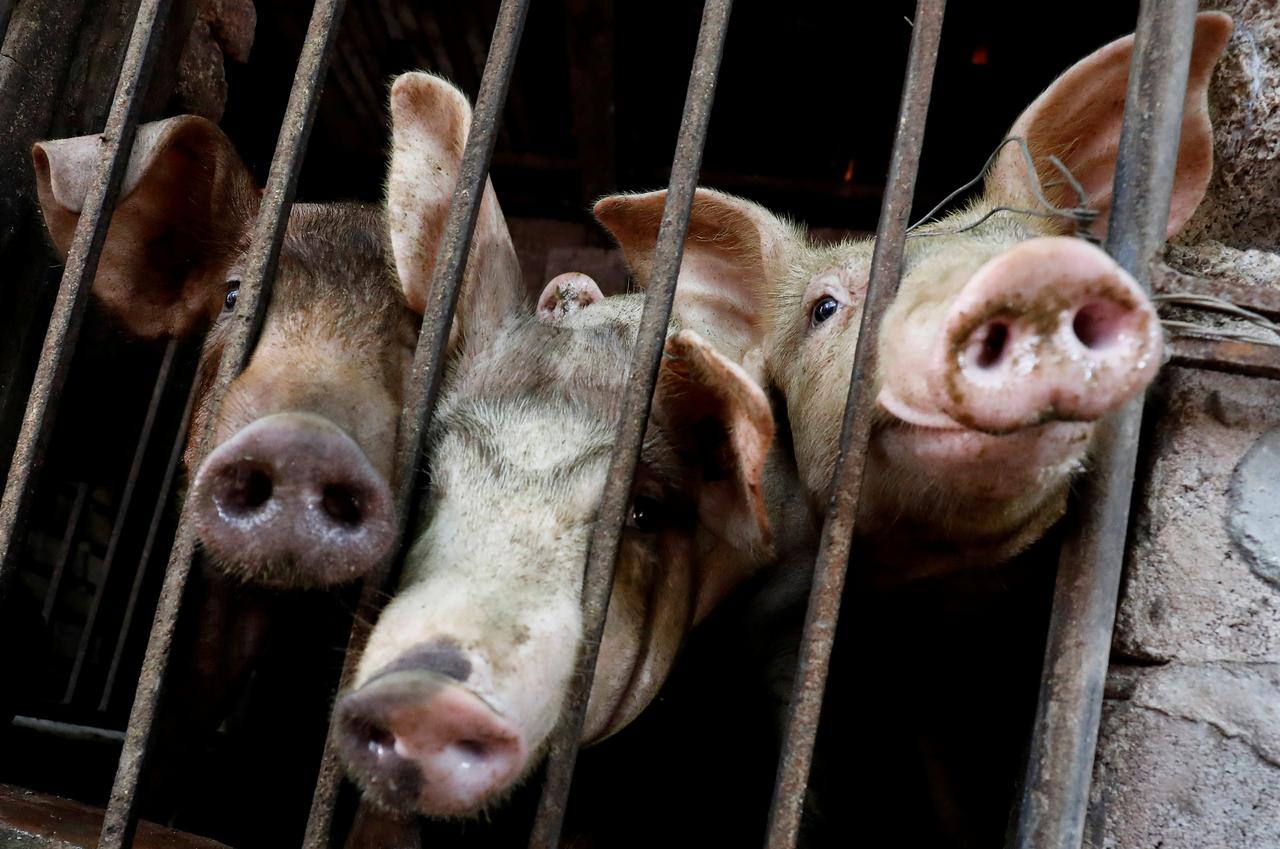Vietnam has urged farmers to restore pig herds battered by an outbreak of African swine fever as the spread of the disease has shown signs of slowing, officials said on Thursday, to prepare for a surge in demand expected for Lunar New Year in January.
Since the disease was first detected in February, it has spread to all 63 provinces in Vietnam, forcing the cull of more than 5 million pigs, or 18 percent of the total hog herd, and driving up prices nearly 70%.
“Farmers’ efforts to enhance hygienic conditions on farms have helped put a brake on the spread,” Nguyen Xuan Duong, the head of the department of livestock production, told Reuters, adding that improving weather conditions had helped.
“We encourage large-sized farms that meet hygienic requirements to expand their pig production.”
It is important to restore pig production to meet pork demand, which is forecast to be particularly high closer to Lunar New Year in late January, Agriculture Minister Nguyen Xuan Cuong said this week.
The outbreak has “initially been contained and shown signs of slowing down,” Cuong added in a statement on Wednesday, but did not elaborate.
While not harmful to humans, African swine fever is deadly to pigs, with no available vaccine.
The outbreak has driven up prices for live pigs in Vietnam by about 70% since early this year to around 60,000 dong ($2.59) per kg, traders say.
In May, Cuong had urged farmers to refrain from developing pig production and instead shift focus to expanding production of cattle and poultry, as well as aquaculture.
Vietnam’s annual poultry output rose 13.5% in the first nine months of this year, while beef production was up 4.2% and aquaculture production up 6.1%, government data shows.



















































